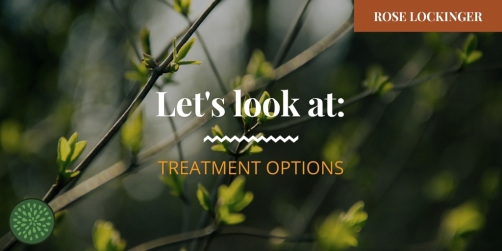What causes addiction?
Special Authored Article by Rose Locking
What “cures” it? There are so many theories, and yes, some are evidence backed. But ultimately, we don’t really know as much as we should. From the causes to the cures, let’s look at some common theories on addiction treatment, and explore some popular beliefs that have been dismissed by science.
First, let’s look at addiction itself. As of now, there is no concrete, proven cause for addiction. Researchers and specialists believe that there are genetic and environmental factors that contribute to the development of addiction, but there are wildly opposing beliefs beyond that.
Addiction is considered by many to be a disease. This is based off the actual definition of the disease, as well as the characteristics of disease. Addiction is chronic, progressive, and often deadly without treatment. Typically involving a stay in a residential inpatient drug and alcohol treatment center.
The other camp proposes that addiction is not a disease at all, but a behavior. After all, addiction does start with a conscious decision to use substances, whether it be alcohol, prescription opiates or cocaine. However, not everyone who has a glass of wine, or uses cocaine recreationally or takes opiate painkillers becomes addicted.
Most understand that substance use causes measurable changes in the brain. Neurochemistry is altered, as well as other brain functions. This change is what causes the obsessive-compulsive drug-seeking behavior, as well as some of the often bizarre thinking that goes along with active addiction.
Does It Matter Whether Addiction Is A Disease Or A Behavior?
Yes and no. It matters because we need to prevent and treat it. Once a person falls into addiction, regardless of how they got there, it’s important to treat the problem. People die every year as a result of addiction, and lives are shattered. The monetary cost is exorbitant, and the impact on society is undeniable. If the root of addiction can be pinpointed, then it may make it easier to cure. Since it seems evident that there is no single cause, however, it isn’t likely that knowing the cause will be the determining factor in creating a treatment.

There have been many ways of approaching the addicted person over the years. From mental institutions to prisons to high-end rehabs that rival many vacation resorts, much has been tried. It’s been approached by medical professionals, law enforcement, neurologists, clergy and psychologists. Addicts have been punished, medicated, prayed over, bribed, analyzed and isolated. In more recent years, professionals of all types have begun to take a more sophisticated, science-based approach. This is still new. There are very few proven treatments for addiction, and even those that are considered evidence-based don’t necessarily work for everyone. There are, however, treatments that have been disproven, and whose efficacy has been refuted.
Here’s a list of them:
- Electric shock therapy.
- Ultra-rapid opioid detoxification under anesthesia for alcohol dependence
- Neuro-linguistic programming
- Scared straight
Other treatments and strategies which are going by the wayside as potential evidence-based practices include:
- DARE prevention programs
- Synanon style boot camps
- Several medications for alcohol dependence, including: Beta-blockers, stimulants, dopamine precursors, lithium carbonate
Why Don’t We Have Many Evidence-Based Treatments For Addiction?
Addiction research is relatively new. Researching treatments in earnest is even newer. Just this year new doctors can now specialize in addiction as a specialty. Right now, most treatment centers are using therapies, treatments and tactics that are not considered evidence-based. Does that mean they don’t work? No, of course not. But it doesn’t mean that they do, either. Some examples of treatments and therapies that are considered evidence-based include:
- Motivational Interviewing
- Medication (in the treatment of opiate addiction, for example)
- TSF (Twelve step facilitation)
Is It Possible To Find A Treatment That Will Work For Everyone?
For the time being, treatments are hit-and-miss. What works beautifully for one person, may not work at all for several others. A combination of behavioral therapy, psychoeducation, medication, treatment of co-occurring disorders and life skills training seems to work for many people, especially when integrated with 12 step programs.
Alternative And Experimental Addiction Treatments
In an attempt to discover new ways to treat addiction, there is a steady influx of new treatment models, therapies and strategies being introduced and explored.
Some are controversial, such as treatment using hallucinogens. This may sound counterproductive, but there is actually a good amount of research involving the use of certain psychotropic drugs and the treatment of conditions such as PTSD and trauma as well as other mental illness, so it was only a matter of time before addiction treatment with hallucinogens was explored. Specifically, the substance Ibogaine has gained interest and criticism as a treatment for opiate addiction. Ibogaine is a powerful hallucinogen, and considered a drug with no medicinal value, but there are addiction professionals and researchers who beg to differ. They report that an opiate addict can gain relief from withdrawal symptoms, cravings and much of the psychological pain of addiction through the careful, monitored use of hallucinogens like Ibogaine.
Other treatments are less controversial, such as the European treatment model, consisting of a combination of cognitive behavioral therapy and Naloxone, a drug commonly used to treat opiate addiction. It makes sense. The medications frequently used to treat addiction may help the person wean off the drug while minimizing withdrawal and cravings, however the psychological dependence is still there. This is why many people relapse even after they are no longer physically dependent. CBT is a useful tool that can help the individual change their thinking and behavior patterns and achieve long-term sobriety.
In the end the important thing to take away is that regardless of the cause we are in desperate need of evidence based treatments that can be tailored to meet the individual needs of each client. This would be the ideal hopefully until then we can continue to take serious the need for effective treatments.

Rose Lockinger is passionate member of the recovery community. A rebel who found her cause, she uses blogging and social media to raise the awareness about the disease of addiction. She has visited all over North and South America. Single mom to two beautiful children she has learned parenting is without a doubt the most rewarding job in the world. Currently the Outreach Director at Stodzy Internet Marketing.


I went through a similar program to “Scared Straight.”
LikeLike
Thanks for volunteering that information. I suspect that was a traumatic experience for you. There was a strange program at a Treatment Center called Schick Shadel. This guy in our recovery group went to it (back in the 80’s or 90’s). He was a very wealthy and successful business man. He told us the program was super pricey. They did this thing called aversion therapy. The patients were forced to drink their favorite cocktail “round the clock”. The idea was that they would develop negative feelings when thought of alcohol. As you might suspect, it didn’t work.
LikeLike
First, the Twelve Step Program, when adhered to, is definitely a life skills program as well. Especially where a sponsor is involved. Second, they’re usually left off of “evidence based” lists, even though there’s a mountain of “evidence” that shows it works great. The problem is the “Higher Power”. There is no evidence there is a God so that excludes 12 Step programs from the list. Of course, ask anyone who’s recovered and they’d agree the omission is ludicrous… in any event, great post.
LikeLiked by 1 person
I suspect that the 12-step program is eliminated from most medical theories, because there’s no money to be made. It reminds me of what people might call “grassroots” minus the politics.
LikeLiked by 2 people
That’s an excellent point.
LikeLike
My husband and I have the disease versus behavior battle. I say disease, he says no.
I’ve been on medicine for opioid dependcy for a little over a year.
I’m having a really hard time finding resources to help me come off of this. The medicine has saved my life, but now I’m ready to see if I can go without it.
LikeLiked by 1 person
I completely understand how your husband might feel that way (assuming he does not have an addiction problem). It is very difficult for folks to understand why just can’t “stop” on our own. You are not alone. Opioid dependency is more common than you think. It’s just that people don’t always talk about it. That is starting to change.
LikeLiked by 1 person
I commented here but not sure what happened to it.
My husband and I have the debate, disease vs behavior. I try so hard to explain my position, we have agreed to disagree, as long as I get well.
I’m on medicine for opioid addiction. But I can’t find many resources to help me come off this now.
Stuck at the end is how I feel.
LikeLiked by 1 person
Great post.
LikeLiked by 1 person
This is typically, where I would say thank you. However, Rosanne gets the credit for this. You can check her out in the links. By the way ….. thanks for stopping by.
LikeLike
I have been in recovery in AA for the last thirteen years and it strikes me that there is a common thread to the causes that people identify for themselves as life settles and the fog clears. From an initial position of addiction being the biggest and only issue in life, people tend to come to see it as a secondary symptom of deeper issues which are almost always born out of trauma, especially childhood trauma the details of which might well be long forgotten.
LikeLike
Thanks for stopping by and I especially appreciate your thoughtful comments. What is your opinion about using the term “recovered” addict of alcoholic, as opposed to “recovering” addict or alcoholic? I prefer the latter, but in my small circle is it a debated topic.
LikeLike
Like you, I prefer the term recovering as the journey never ends and that is a positive thing. If I am recovering, I am continuing to grow which is a very nice feeling after years of stagnation in addiction. Recovered would imply that the end of the journey is reached and there is nothing more to do. That seems to me to quite a dangerous state of mind for anyone who has ever had to admit to addiction.
Also, thanks for the appreciation.
LikeLike
Also, I would suggest that cause is extremely important on an individual level. If we don’t understand what took us to our drug of choice then we will always live in fear of going back as well as uncertainty about the effectiveness of the treatments available. Everyone I know who has achieved long term sobriety has needed the help of people outside of the recovery community to reach an understanding of themselves and to be at peace with what they find.
LikeLike